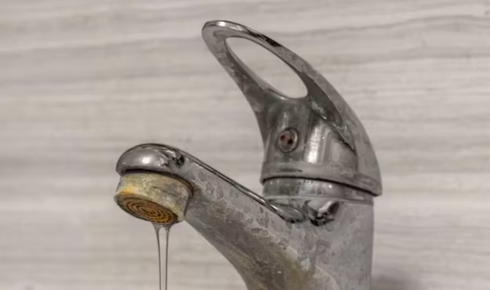There’s something oddly comforting about filling a glass straight from the kitchen tap — that soft rush, the splash against the glass, the small ritual before the first sip. But if you’ve recently moved to Nashville, or even if you’ve lived here for years, you’ve probably asked yourself the same question many locals quietly wonder: is Nashville tap water safe to drink?
That’s not paranoia; it’s curiosity mixed with a healthy dose of caution. With all the news about water contamination, PFAS chemicals, and old infrastructure across U.S. cities, wanting reassurance isn’t just smart — it’s responsible.
Nashville’s Water Source: The Basics
Let’s start from the beginning. Nashville’s water primarily comes from the Cumberland River, a wide and winding source that stretches across several states before reaching Middle Tennessee. From there, the Metro Water Services treats, tests, and distributes it through one of the largest systems in the Southeast.
According to city data, the water meets all state and federal safety standards. That means it’s disinfected, filtered, and routinely tested for things like lead, copper, chlorine, and microbial contaminants. But here’s where it gets interesting — meeting “standards” doesn’t always mean it’s perfectly pure.
See, those standards represent what’s considered acceptable, not necessarily ideal. So while the official answer is yes — Nashville’s tap water is technically safe to drink — that doesn’t mean it’s completely free from trace substances or minor issues that might affect taste or long-term preference.
The Hidden Factors That Shape Your Water’s Quality
Even if the water leaves the treatment plant in pristine condition, its journey doesn’t end there. It travels through miles of pipes — some newer, others decades old — before reaching your home. That’s where variables sneak in.
For instance, the type of plumbing in your house can influence what ends up in your glass. Older homes may have corroded pipes or lead soldering that slightly alter water composition. It’s subtle, but noticeable, especially to sensitive palates.
Then there’s the seasonal factor. During summer, when temperatures rise, the water might carry a faint earthy or chlorinated smell. It’s not harmful, just more pronounced because warm water amplifies those aromas.
And yes, minerals play a role too — which brings us to the next question nearly every Nashvillian with a coffee maker or shower glass has wondered at least once: does Nashville have hard water?
So… Is It Hard or Soft?
In short — Nashville’s water is moderately hard. On average, it contains about 80–100 mg/L of calcium carbonate, which falls squarely into the “hard water” category.
Now, what does that mean for you? It’s not dangerous, but it does have a few everyday effects you might’ve already noticed without realizing it. That chalky film on your faucet? The cloudy spots on your glassware after washing? The soap that doesn’t lather quite as easily as you’d like? Yep — that’s hard water doing its thing.
Hard water is rich in minerals like calcium and magnesium, which, ironically, are good for your body but not so great for your plumbing or appliances. Over time, they can leave behind scale buildup that reduces efficiency in water heaters, kettles, or even dishwashers.
That’s why some locals choose to install softeners or filters at home — not because the water’s unsafe, but because they prefer smoother texture, better soap performance, or simply cleaner taste.
Comparing Taste and Safety
Here’s something funny about taste: people often think clean water has no flavor. But in reality, pure water always has a faint “character” based on its mineral balance. Nashville’s tap water leans slightly mineral-forward, which gives it a distinct flavor compared to bottled or filtered options.
If you’ve ever visited another city and found their tap water “off,” it’s just your palate reacting to different mineral levels. Nashville’s profile is actually quite balanced, even with its moderate hardness. Many residents drink straight from the tap daily without issues.
Still, those who are extra cautious — especially families with small kids or people with compromised immunity — might prefer filtered options like activated carbon systems or reverse osmosis units. These don’t just improve flavor; they also remove any lingering traces of chlorine, sediment, or microcontaminants.
So yes, Nashville tap water is not only safe but also carefully managed. The city invests heavily in monitoring and testing, often going beyond the minimum federal requirements.
When in Doubt, Get It Tested
If you’re still unsure, you don’t have to rely on generic reassurance. Nashville’s Metro Water Services offers detailed water quality reports every year — public documents outlining exactly what’s in your tap. And for those who want an even closer look, you can order at-home water testing kits or hire independent labs to analyze your household supply.
Testing gives peace of mind, especially if you’ve got specific health concerns or if your property is older. It’s a small investment that can help you make informed choices about filtration or treatment systems.
Why the Conversation Matters
Talking about water quality might sound mundane, but it’s deeply connected to public health and trust. Clean drinking water is something most of us take for granted — until there’s a reason not to. By asking questions, staying informed, and keeping an eye on community updates, you’re not just protecting your own household; you’re helping ensure the city stays accountable and transparent.
Plus, awareness tends to spark improvement. When residents demand clarity, it pushes utilities to adopt better testing methods, upgrade pipelines, and publish clearer data.
Wrapping It Up
So, is your Nashville tap water safe to drink? Yes — by all measurable standards, it is. But like most cities, it’s not flawless. You might want to use a filter if you dislike the taste or worry about long-term exposure to trace elements. And if you notice buildup in your shower or on your dishes, blame the minerals — not contamination.
In the end, Nashville’s water tells a story of balance: responsibly managed, occasionally imperfect, but consistently improving.
So the next time you fill that glass, take a sip knowing it’s part of a bigger system — one that keeps your city flowing, quite literally, from the river to your home.

